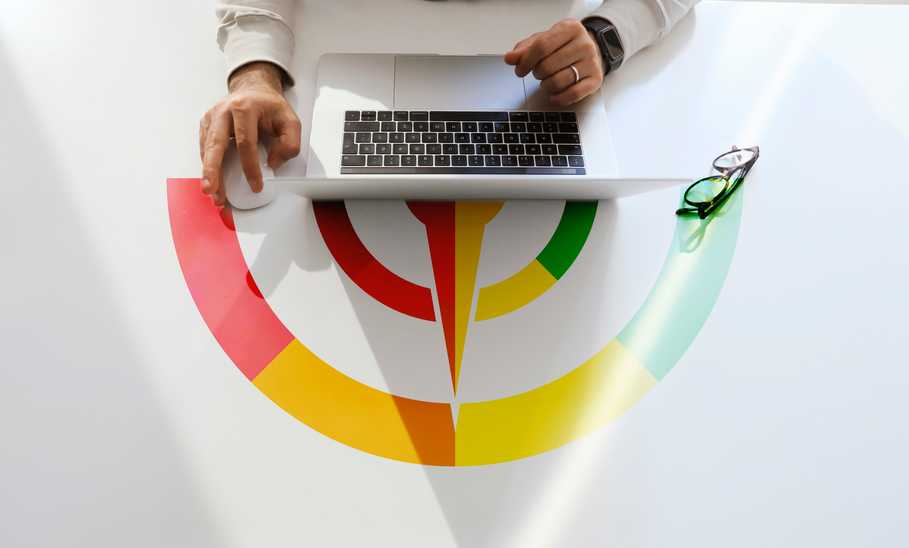What Credit Score Do You Need for a Personal Loan?

Our evaluations and opinions are not influenced by our advertising relationships, but we may earn a commission from our partners’ links. This content is created by TIME Stamped, under TIME’s direction and produced in accordance with TIME’s editorial guidelines and overseen by TIME’s editorial staff. Learn more about it.
The lowest possible credit score you can have is 300. Unfortunately, only a few lenders accept borrowers with scores this low.
Most minimum credit score requirements for personal loans range from 600 to 700, while the best interest rates are reserved for borrowers with a score of 670 or higher. With the average credit score in the U.S. at 717 (as of October 2023), most consumers are well ahead of the minimum requirements.
Still, you need more than a good credit score to qualify for a personal loan. Let’s examine the bigger picture.
Lenders will consider your credit utilization, income, and debt when you apply for a personal loan. Some online lenders can approve you within minutes, but knowing the lender’s specific needs is helpful before you apply.
Your credit score is the best way for a lender to measure your creditworthiness. The higher the score, the lower the perceived risk, and each lender will have its own acceptable risk level.
Your credit history, closely tied to your credit score, also plays an important role in the decision. Lenders considering borrowers with lower credit scores will look at the individual factors that make up the score. These include:
To qualify for a loan, you must demonstrate that you can afford the monthly payment. To determine affordability, lenders will want to confirm your employment and income. The more stable your employment, the better. If you’ve just started a new job, you may struggle to qualify for a loan with many lenders. This is something to remember if you’re considering changing jobs and have borrowing needs.
Outstanding debt is another important factor. A lender will evaluate your debt-to-income ratio, which is your debt compared with your income expressed as a percentage. If the ratio is too high, you may not be approved.
Most lenders will need to obtain the following information:
Some lenders will issue personal loans to borrowers with unimpressive credit. This includes those with credit scores labeled “fair” (580 to 669) or even “poor” (300 to 580).
A score in these ranges represents more risk to lenders, so they will charge higher interest rates and fees to compensate.
If your credit is compromised, you’ll need to find a lender willing to accept lower credit scores. Here are a few to consider.
LendingPoint doesn’t publish a minimum credit score requirement. It uses a model that considers other factors in your credit history. However, just because LendingPoint will consider borrowers with low credit scores doesn’t guarantee approval.
As of May 25, 2024, LendingPoint personal loans range from $1,000 to $36,500, with interest rates from 7.99% to 35.99%. Terms range from 24 to 72 months.
Upstart is another fintech lender that considers applicants with credit scores as low as 300. When assessing loan applications, Upstart will look for negative reports, such as bankruptcies, delinquent accounts, and public records. Borrowers must meet its minimum debt-to-income ratio, which is 45% in Connecticut, Maryland, New York, and Vermont and 50% in all other states.
As of May 25, 2024, loan amounts range from $1,000 to $50,000, interest rates are between 7.8% and 35.99%, and repayment terms are either three or five years.
Upgrade doesn’t have a minimum credit score for personal loans. (However, it does state a limit of 580 for auto loans, which may be some indication of its standards.) It does offer a prequalification process, which should let you know quickly if you are likely to be approved.
As of May 25, 2024, loan amounts range from $1,000 to $50,000, with interest rates ranging from 8.49% to 35.99%. Borrowers can choose a repayment period of 24 to 84 months.
There isn’t one loan that’s right for every borrower. Finding the one for you takes work.
Don’t waste time applying to lenders who won’t consider you. Do your due diligence by ensuring your credit score and lender fit together.
A prequalification doesn’t guarantee that you will be approved for a loan, but it’s a good first step. Online lenders make the process easy, and they usually won’t require a hard credit check, which can temporarily depress your credit score.
Prequalification will show you the loan amount you can afford, the interest rate, possible term lengths, and the fees. Prequalify with multiple lenders and then compare before making any decision.
Want a better rate? Improving your credit score can help. Here are a few moves you can make.
Your payment history accounts for 35% of your credit score. Automating your payments can help to ensure you don’t miss a due date.
Another 30% of your credit score comes from amounts owed. Your credit utilization ratio looks at the percentage of your available credit that has been used. Lower is better. If you regularly max out your credit cards, your credit score will take a hit. Paying down your cards can improve your credit score.
Negative marks on your credit history include repossessions, bankruptcies, missed payments, and collection accounts. You can’t do much about the first two (they will eventually fall off your report), but you can pay off existing collections and create a new history going forward of on-time payments. You should also check your report often and dispute any inaccuracies, especially if you’ve been a victim of fraud. Finally, there are even ways to get hard inquiries removed from your report.
If you open a lot of credit accounts in a small amount of time, it’ll reflect negatively on your credit report. The one exception is if a new credit account helps to diversify the kinds of credit you already have. For example, if you only have credit cards, an installment loan, such as a personal or auto loan, may give you a small boost, because it broadens your credit mix, which accounts for 10% of your score.
A personal loan isn’t your only option if you need to borrow money.
A line of credit is a revolving loan in which the lender approves up to a specific credit limit, similar to a credit card. Once the line of credit is activated, you can choose how much you want to borrow up to the limit. You only pay interest on the amount you draw down on the credit line.
HELOCs and home equity loans allow you to borrow against the value of your home and generally come with low interest rates. However, you are putting your home at risk if you fail to make the payments.
Using an existing credit card can be convenient if you only need to borrow a small amount. A new credit card with a 0% introductory annual percentage rate (APR) can make sense if you cannot pay off the balance before the payment due date.
This will help you avoid paying a high interest rate with your existing card. However, any credit card is only recommended if you have no other options and are 100% sure you can quickly pay off the amount you charge.
It’s possible to borrow against the value of your retirement account, but you must repay the full amount. Otherwise, it will be treated as a distribution and you’ll have to pay tax (and possibly penalties).
If you require a large amount of funds, you may want to consider a cash-out refinance. This involves refinancing your mortgage and taking the difference between the new loan and the old loan in cash. You can use the money for anything you want, and you’ll still have only one monthly mortgage payment.
Your credit score has a huge impact on your application for a personal loan. The higher the score, the more favorable the interest rate and term. Some lenders won’t consider you if your score falls below a certain threshold, so don’t waste time applying where it will do you no good. Keep tabs on your score and constantly strive to improve it.
Secured loans are guaranteed by collateral, such as a car, cash, or a house, and are generally the easiest to get. If you default on the loan, the lender can claim your collateral in compensation.
Personal loans fall into the installment loan category of your credit report. Your score generally improves as the balance goes down, as long as you always make your payments on time.
Generally, you should aim for a credit score of good or higher (670 and above) to qualify for a $10,000 personal loan—or a loan of any amount, for that matter. If you have a lower credit score, be sure to prequalify with the right lenders.
You can obtain a free online credit score weekly from the three major credit reporting agencies, Equifax, Experian, and TransUnion, at annualcreditreport.com.
Your credit score improves whenever positive reports are submitted to the three major credit reporting bureaus. Reports are monthly, so your score can indeed improve quickly. However, it generally takes three to six months to build a credit history if you don’t have one.
The information presented here is created by TIME Stamped and overseen by TIME editorial staff. To learn more, see our About Us page.



